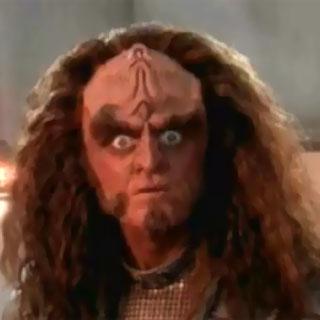How long you spent in that shower?
I usually say “There are an infinite number of integers. That does not mean that one of them is a banana”.
The mind-bending thing about it is thus: there are an infinite multitude of “you” throughout the multiverse expressing every “you” that could, or even could not, be. However, there are infinitely more realities with no “you” at all. The set of infinities containing an expression of “you” is necessarily smaller than the set of infinities that do not contain an expression of “you” simply owing to the very narrow nature of eventualities required to express “you” into existence. In point of fact, that set if infinitesimal labeled “you” is infinitesimal in comparison to the set labeled “not you”, and yet still uncountable in its infinity.
I’m not sure how sound that reasoning is, it’s difficult to use intuition to determine whether one infinite set is bigger than another. Infinity is weird.
Say for instance you have two infinite sets: a set of all positive integers (1, 2, 3…) and a set of all positive multiples of 5 (5, 10, 15…). Intuitively you might assume the first set is bigger, after all it has five times as many values, right? But that’s not actually the case, both sets are actually exactly the same size. If you take the first set and multiply every value by 5 you have the second set, no need to add or remove any values. Likewise, dividing every value in the second set gives you the first set again. There is no value in one set that can’t be directly mapped to a unique value in the other, therefore both sets must be the same size. Pick any random number and it’s 5 times as likely to be in the first set than the second, but there are not 5 times as many values in the first set.
With infinitely many universes one particular state being a few times more or less likely doesn’t necessarily matter, there can still be as many universes with you as without.
The ultimate conceit is that infinities are a wonderfully engaging concept, but truly comprehending them as a tangible thing is inherently futile. We want to make these comparisons. They do, in some ways, hold some kind of meaningful as a concept, because we like one thing to be bigger or better than the other. But, at the scale of infinity, these comparisons are arbitrary and largely meaningless in any practical way.
Don’t worry, in one of those realities, odds are one of the me’s developed a multiversal bomb that destroyed all the realities other than ours.
Where it gets strange is that there are actually an equal number of multiverse that have a version of you as there are that do not contain a version of you.
For the sake of simple math, let’s assume that there are an infinite number of multiverses and that the amount of those which contain a version of you is 1/10th.
So let’s take the amount of multiverses and divide them by ten. What do we get? Infinity.
It’s like trying to say there are fewer rational numbers between 1 and 2 than there are between 2 and 10. The number is always infinite.
No, there are some infinities bigger than other infinities. I know it sounds dumb, but this has been mathematically demonstrated. All infinities aren’t the same size, basically.
The set of rational numbers is larger than the set of integer numbers, even though they are both infinite.
What the person you replied is trying to say is that the intinite amount of universes that exist is infinitely larger that the infinite amount of universes in which you exist.
Personally, I think we can’t mathematically understand if the multiverse is a countable or uncountable infinite… Maybe we can? I don’t know.
This does not make any sense.
If there are an infinite number of fractions between 1 and 2, all you are doing is naming a set of universes with a constricted naming convention, and the set of universes is still infinite, thus contains any possible universe including an infinite number with an exact replica of you, an infinite number with a slightly different version of you, and an infinite number where you do not exist.
Just because constrained infinities of certain kinds of numbers can be nested within other infinities of unconstrained, or less constrained infinities of universes does not mean that somehow this has applications to multiverse theory.
If the given assumption is ‘there are an infinite number of alternate universes’ then the fact that fractions between 1 and 2 are an infinite set has literally no logical ability to mandate that this would somehow constrain the nature of previously established infinity of universes.
The possibilities of an infinite set of universes would be ultimately constrained by all possible sets of the laws of physics that allow any kind of universe to exist.
We already know that we live in a universe where humans exist, so, again, there will thus be an infinite number of universes with an infinite number of variations of you exist, and and infinite number where you do not exist.
EDIT: Here is maybe another way of looking at this.
There are an infinite number of positive integers.
There are also an infinite number of even integers, as well as odd integers.
The set of all odd integers contains half the number of all integers, though both are still infinite.
The set of all odd integers is constrained by the rule of none of its constituents are cleanly divisible by two.
But the fact that you can arbitrarily chose a rule to constrain one, larger infinite set into a smaller but still infinite set, does not mean that the larger infinite set does not still exist.
For this ‘fractional universes’ constraint to make any sense, one would have to demonstrate /why/ the constraint would need to apply to a set of all universes, in a way that is actually meaningfully different than /the constraint not being there/.
And that is an astoundingly complex matter of physics, not Set Theory 101.
EDIT 2: My above example from EDIT 1 is not logically valid, so… I played myself on that one, and worse it seems to have confused the whole discussion, so, apologies for that.
Check out leftzero’s link for a more accurate analogy that I /should/ have used.
I still believe my original main point still stands though: The fact that there are an infinite number of fractions between 1 and 2 in no way means anything whatsoever about possible multiverses.
Possible and Impossible universes are defined by the laws of physics.
To override my comment elsewhere in this thread:
A universe without gravity could conceptually exist, but stars would not form, so we would probably not have any of the atomic elements produced by novae and super novae. Also, no galaxies, no black holes, no planets, no life as we know it, as it seems life requires a planet.
A universe without the Strong Nuclear Force would just be ‘quark soup’.
A universe without the Weak Nuclear Force on the other hand has been demonstrated by at least one, perhaps now multiple papers to actually possibly be relatively similar to ours in some ways… very big picture kind of ways.
A universe without ElectroMagnetism … at bare minimum would have vastly different Chemistry than ours. Organic Chemistry seems largely impossible, so no life as we know it, other than possibly some primitive extremophiles.
But these are just thought experiments.
My main point was the whole ‘infinite fractions existing between 1 and 2 has no ramifications on multiverses that could exist’ thing, and I again apologize for an incorrect and misleading example.
The set of all integers is not larger than the set of all odd integers.
The set of all real numbers, on the other hand, is.
https://en.m.wikipedia.org/wiki/Cardinality_of_the_continuum
Ah, you are correct, my example was flawed.
Thats what /I/ get for not having brushed up on Set Theory 101 in a decade.
Derp.
The point is that people tend to claim the opposite, that an infinite amount of universes means everything and anything is happening in some universe somewhere. Which can’t be true, as a universe where someone creates some device that destroys all universes does not exist (as proven by our own existence).
Therefore it follows that there must be some constraints, though what those constraints actually are is obviously a very difficult problem.
The “infinite fractions between 1 and 2 which are not 3” is an example that shows that infinite =/= everything.
I agree with you up to the last sentence.
I would say it is an analogy that is clumsy at best, and definitely not proof of anything about possible or impossible universes, as the OP presented it.
It’s not a proof of possible/impossible universes, it’s a counterexample to the argument that infinite universes must necessarily mean that there’s a universe with anything in it. It disproves that there must be a universe with X in it because there are infinite universes. It does not disprove that there isn’t a universe with X in it.
It makes no claims that the multiverse must necessarily be constrained, but it does show that you can’t simply assume that the multiverse must be unconstrained. That needs to be proven first. And there are compelling arguments to assume that said constraints do exist (in some way).
All analogies are clumsy. It’s an analogy, not a paper.
You made me realize that we always think of infinity as an immensely large number, but it can be an immensely small number (0.0(infinite)1).
We imagine the vastness of space and forget that people are studying what makes up quarks.
So thanks for making me realize infinity stretches in both the inifinitely large and the infinitely small. Wasn’t expecting to get a ride on the total perspective vortex from showerthoughts today.
Very good, what you described is called an Infinitesimal, and it is a building block of Calculus.
I feel like you’ve completely missed the point. I feel like OP is implying that just because there are infinite universes, it doesn’t mean you’re the leader of the world in any of them. Not all things are possible, even with an infinite number of universes.
As you said, existence is constrained by laws of physics of this universe and by potentially different laws/constraints in other universes that we can’t possibly know. Because we lack the ability to observe the infinite expanse of universes as a whole, we can’t know what the constraints are (if any) so we can only understand them as infinite possibilities without constraints, but this doesn’t mean that there are not constraints that we’re just incapable of observing, and I feel like this was OPs point with this post. We don’t know what we don’t know.
This doesn’t make sense. OP just provided an example of “infinite universes” that even tho they are infinite, they do not contain all possibilities. Because we can’t see all universes at the same time, we cannot know if they have any constraints at all. For instance, all universes might only have me being born in some odd day for some weird reason for all we know.
OP assumes that the multiverse has constraints. The person you replied to is saying that OP is wrong because we don’t know whether the multiverse has constraints, so OP is wrong.
I was going to post more or less similar rant, but hey thanks for doing it. I second this @OP you hear this? This post just sounds like you don’t understand infinity that well.
Jerry there’s an infinite number of you and all of them are losers.
Some people are so petty or have such bad self-esteem that they will contemplate the infinite only as a means to put someone else/themselves down
I’m referencing Rick and Morty…
I know, Rick kinda is the ultimate representation of that, both ways.
I considered that. Wasn’t sure if you knew.
“They” don’t have any proof.
The person most qualified to speak on this is Sir Roger Penrose, and he believes quantum wave collapse is caused by gravity, and rather than happening faster than the speed of light it’s actually reversing time and happening in the past.
That “prunes” the multiverse leaving us with one prime timeline. So the multiverse would only exist for fractions of a second before collapsing back into one retroactively before it even existed.
And I can only assume the writers of Loki knows about him and that’s why it sounds like I’m just explaining the MCU.
Seriously, Penrose is basically the Einstein of this generation. He finished up a lot of Einstein’s work, and has spent the last couple decades looking into this and what consciousness actually is. If it sounds like science fiction, is because writers would take the five minutes to read what the world’s smartest physicist thinks.
If it sounds confusing, it’s because the only thing in the universe that requires linear time in one direction is consciousness. So we only experience time like that. Everything else really doesn’t give a shit about time, especially at the quantum level.
But yeah, a “bigger” infinite can exist than a “smaller” infinite. It’s too confusing for me to understand, but a bunch of really really smart people have been looking into it. It’s kind of the same thing. Humans are limited, and our way of expressing ideas even more so.
Eventually we might figure out a way to explain that doesn’t break the brains of 99.99999999% of humans.
But if you want to try and understand, there’s lots of writing on it and even a decent Netflix documentary
OP discovers countable infinity
That’s not at all what they’re saying. They’re saying that 3 is not between 1 and 2. They could have also have said there’s a continuum of real numbers between 1 and 2 but none of them are 3.
Maybe the real 3 was the friends we made along the way?
There’s an uncountably infinite range of numbers between 1 & 2. OP is still wrong though. If you existing has some non-zero probability, there must be an infinite number of you, since any positive number multiplied by infinity is infinity.
OP didn’t say there are not an infinite number of you. They said 3 isn’t between 1 and 2, therefore infinite sets don’t necessarily contain every value.
There, solved it for you. Next!

Well, there’s this trolley situation that keeps coming up…
if there are an infinite amount of multiverses, logically, there must be many in which you do not exist.
Not necessarily. You could be the one constant throughout them all for whatever reason and it wouldn’t put any damper on there being an infinite number of universes. That’s the whole point of OPs example; infinity can still be bound by limits.
That’s the whole point of OPs example; infinity can still be bound by limits.
such as there being no constants? can that not be a limit?
We can’t really know what’s possible I suppose, it’s more that there’s sort of different “levels” of infinity where one level can contain another within itself, but both are still infinite just the same. When people imagine infinity they picture everything, but it doesn’t need to be.
Hilbert’s hotel is a good example that illustrates how infinities are weird.
And at least one where this post wasn’t made.
quantum humor. cute.
Those are the lucky universes.
You’re assuming that physics would be the same in every other universe. Physics works the way it does in our universe largely because of constants, but we don’t know why many of these constants exist and we probably never will. The idea of a god creating out universe seems like an obvious explanation, but more likely it’s survivor bias. Specifically, the idea that since we happen to live in a universe where everything is just right and so we look at that as a miracle and probably planned. In reality, it’s more likely that there are actually an infinite number of universes with different physics where life is impossible, but that means that even if less than 1% of all of those infinite universes is able to support life, there are still so, so many universes in which it was. Many of them being nearly identical to our own, and many of them being so strange and alien that we probably couldn’t even wrap our heads around the strangeness even if we had an eternity to study them.
But what makes the infinite versions of you bound to a range of 1-2 rather than infinity itself?
If “>2 and <1” in this scenario are dimensions where you don’t exist, wouldn’t the range of 1-2 cover every possibility of who you could be?
No, that’s the point. The numbers between one and two are infinite; there’s no “infinity itself”. You can have infinite possibilities without having “every” possibility. There are infinitely many things that could be excluded from infinite universes, and there’d still be infinite universes just the same.
For something to be a possible universe vs an impossible universe, we would be talking about possible laws of physics that do and do not allow for a universe to exist.
That would be the constraints to an infinite set of possible universes.
The fact that there exist an infinity of fractions between one and two is irrelevant and has no bearing on this at all.
There are absolutely not an infinite number of things that could be excluded from the set of infinite possible universes.
Gravity, for example.
Last I checked, it was posited that a universe could possibly exist without the Weak Nuclear Force, but I have never heard of a possible universe that could exist without the Strong Nuclear Force or Electromagnetism.
The fact that there exist an infinity of fractions between one and two is irrelevant and has no bearing on this at all.
It’s an analogy to help people grasp that infinities are weird. Just like there are infinite numbers between 1 and 2, there are also infinite numbers that aren’t between 1 and 2. Just because there’s infinite universes doesn’t mean one of them must have unicorns, in the same way that the infinite set between 1 and 2 doesn’t contain 3. A common misconception people have is that infinite universes must mean there’s one just like the Marvel universe, or that you win the lottery in one, but we can easily have infinity without including those things.
All of the universes could have our exact same laws of physics and that wouldn’t prevent there from there being infinitely many. They could all have the same guy named Gary. The point is, you could have infinite universes just tweaking one variable infinitely many ways, and there are infinite variables…
An oldie but goodie! https://youtu.be/SrU9YDoXE88?si=FAQVuiMLnzXZnQiK
There are different kinds of infinity.
basically, imagine an infinite amount of universes which are identical to this one. now say every second one has one thing changed about it. theres still infinite universes, but only 2 possibilities.
And if infinite possibilities exist then there must be a universe in which all other universe are a carbon copy of that one and not at the same time. It can be expanded well past the absurd.









